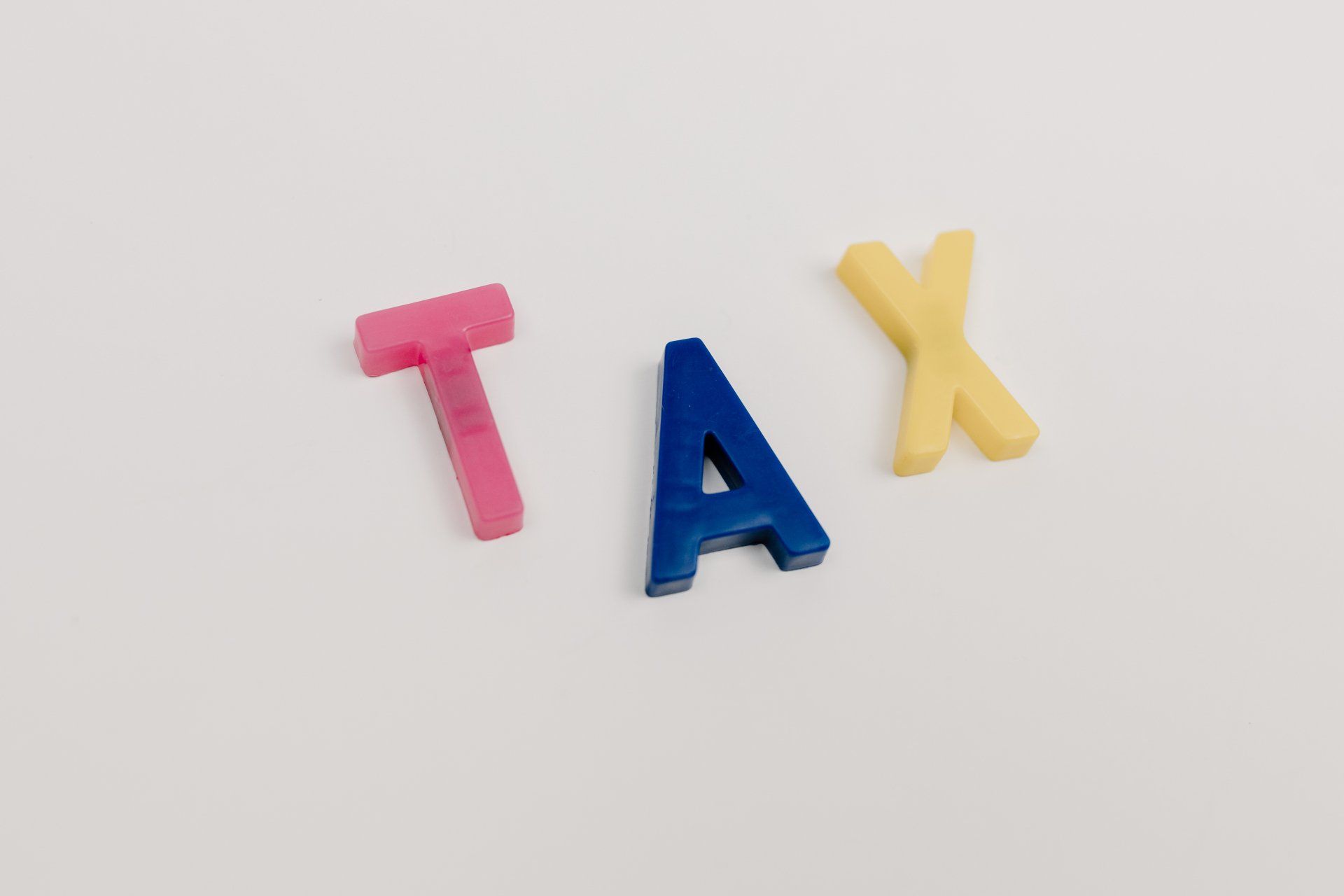Canadian Small Business Bookkeeping Guide: A Comprehensive Resource for Small Business Owners
We offer accounting services that are both timely and thorough, and our rates are very competitive. Please contact us right away for any of your accounting and tax needs.
Tax services can help individuals and businesses navigate the complex tax code and ensure compliance with government regulations, potentially saving them money and reducing the risk of penalties or audits.
All industries, regardless of size or type, can benefit from professional accounting and tax services to manage their financial operations and meet legal compliance requirements.
Accounting services can provide important financial information and insights to help businesses make informed decisions and improve their overall financial performance.
Late and back taxes can lead to penalties and interest charges, and can cause financial stress, it is important to address them as soon as possible with the help of a tax professional.
Contact us
For all your accounting and tax services we are here to help you
We will get back to you as soon as possible
Please try again later
Canadian Small Business Bookkeeping Guide

Please note that this article is provided for informational purposes only and does not constitute professional advice. For specific guidance on your bookkeeping needs, consult with one of our qualified accountants.
Introduction
As a small business owner in Canada, bookkeeping is an essential task that you need to undertake to ensure the financial health and success of your business. Proper bookkeeping allows you to track your income and expenses, make informed business decisions, and fulfill your tax obligations. In this comprehensive guide, we will walk you through the importance of bookkeeping, the benefits it offers, and the steps you can take to simplify and automate your bookkeeping processes. Whether you are a new business owner or looking to improve your existing bookkeeping practices, this guide will provide you with the knowledge and tools you need to effectively manage your small business finances.
Why Is Bookkeeping Important?
Bookkeeping serves as the foundation for financial management in your small business. It provides you with accurate and up-to-date financial information that allows you to make informed decisions, comply with legal and tax requirements, and effectively manage your cash flow. Here are some key reasons why bookkeeping is important for your small business:
1. Useful Financial Reporting
Proper bookkeeping allows you to generate useful financial reports for your business. These reports help you answer important questions such as whether your business is profitable, where your cash is going each month, which products or services are performing well, and whether your business is growing or shrinking. By having access to this information, you can make data-driven decisions that guide the growth and success of your business.
2. Operational Benefits
Accurate and up-to-date bookkeeping provides operational benefits for your business. By maintaining organized records, you can easily track who owes you money and who you owe money to. You can also forecast your sales tax and income tax obligations, determine your available cash, and plan for future cash needs. These insights help you avoid penalties, take advantage of early payment discounts, and make informed purchasing decisions.
3. Compliance
Compliance with tax and legal requirements is crucial for any small business. Good bookkeeping practices ensure that you file and pay your taxes on time, reducing the risk of audits and penalties. By keeping accurate records and properly categorizing your transactions, you can also easily provide supporting documentation in the event of an audit.
4. Claiming Every Deduction
Proper bookkeeping ensures that every transaction is accurately recorded, allowing you to claim every tax deduction that your business is entitled to. By maintaining detailed records and supporting documents, you can maximize your deductions and minimize your tax liability.
5. Catching and Correcting Errors
Regularly updating your books enables you to catch errors quickly. By reconciling your bank statements, you can identify bank errors or discrepancies and rectify them promptly. Additionally, by monitoring your accounts receivable and accounts payable, you can identify any discrepancies in customer payments or vendor invoices and take appropriate action to collect outstanding payments or correct billing errors.
6. Obtaining Business Financing
Accurate and well-kept books play a crucial role in obtaining financing for your small business. When applying for a business loan, lenders will review your financial statements to assess your business's financial health and repayment ability. By maintaining accurate records, you can provide lenders with the necessary information to evaluate your loan application and increase your chances of securing funding.
Our Top Bookkeeping Tip: Separate Your Business and Personal Finances
One of the most important bookkeeping practices is to separate your business and personal finances. This simple step can save you time and effort when it comes to tracking your business transactions and preparing your financial statements. Here's our top bookkeeping tip:
Get a separate business bank account and credit card.
Keeping your business transactions separate from your personal ones is the first step to making bookkeeping easier. With separate accounts, you can easily track your business income and expenses, identify potential tax deductions, and ensure accurate financial reporting. Mixing personal and business transactions can lead to confusion, errors, and potential issues with the Canada Revenue Agency (CRA). By maintaining separate accounts, you streamline your bookkeeping processes and avoid unnecessary complications.
How to Separate Your Accounts
Separating your accounts doesn't have to be complicated. Here's a simple process to help you get started:
- Open a separate bank account within your current bank or credit union specifically for your business. This account should be used exclusively for business-related transactions.
- Apply for a separate credit card for your business expenses. This will help you easily track and manage your business purchases.
- Treat your business finances as a separate entity from your personal finances. Avoid using your business account or credit card for personal expenses, and vice versa.
By following these steps, you establish clear boundaries between your personal and business finances, making bookkeeping more efficient and accurate.
Which Bookkeeping System Should You Use?
Choosing the right bookkeeping system is crucial for effectively managing your small business finances. There are various options available, each with its own features and benefits. When selecting a bookkeeping system, consider your specific needs and goals. Here are some factors to consider:
1. Just the Basics
If your main goal is to stay compliant and file your taxes on time, a simple bookkeeping system may be sufficient. Look for a system that allows you to record your income and expenses and generate basic financial reports.
2. Reporting
If you want to review and analyze financial reports regularly, look for a bookkeeping system that offers robust reporting capabilities. This will allow you to track your business's financial performance, identify trends, and make informed decisions.
3. Invoicing
If you plan to handle invoicing within your bookkeeping system, choose a system that offers invoicing features. This will streamline your billing processes and help you track outstanding payments.
4. Other Functionality
Consider any specific applications or integrations you may need for your business. For example, if you have an e-commerce store, you may want a bookkeeping system that integrates with your online platform to automatically track sales and inventory.
5. Growth
If you anticipate your business growing in the future, choose a bookkeeping system that can scale up along with your business. This will prevent the need for a system migration down the line and ensure continuity in your financial management processes.
6. Cost
Consider your budget for a bookkeeping system. While there are free or low-cost options available, keep in mind that more advanced features and scalability often come with a higher price tag. Assess the value the system will bring to your business and choose accordingly.
Based on these considerations, you can identify the bookkeeping system that best fits your needs. Here are some recommendations based on different business categories:
Simple Compliance
If your main goal is to stay compliant and keep things organized for tax purposes, a free Google Sheet template may suffice. This template allows you to categorize your transactions and record your income and expenses. While it has limited reporting options and no invoicing capabilities, it provides a simple solution for basic bookkeeping needs.
A Few Bells and Whistles
If you want a bit more functionality, such as invoicing and more advanced reporting options, consider using Wave. Wave is a cloud-based bookkeeping system that offers basic bookkeeping, invoicing, and reporting for free. It also integrates with your bank feeds to automatically import transactions, saving you time and effort.
Long-Term Solution
For a more comprehensive bookkeeping solution that offers robust reporting, app connectivity, and scalability, consider using Xero. Xero is a cloud-based accounting software trusted by many small businesses. It provides advanced features for financial reporting, invoicing, and inventory management. While Xero comes with a monthly subscription fee, it offers a stable platform and extensive support resources.
Ultimately, the choice of a bookkeeping system depends on your specific needs, budget, and growth plans. Take the time to evaluate different options and choose the one that aligns best with your business requirements.
How to Categorize Transactions
Categorizing transactions is an essential part of bookkeeping. By assigning each transaction to the appropriate category, you can organize your financial records, track your income and expenses, and generate accurate financial reports. Here are some tips for categorizing transactions effectively:
Keep it Simple
When creating your chart of accounts, aim for simplicity. Avoid creating too many expense accounts, as this can make financial statements difficult to read and interpret. Instead, group similar expenses under broader categories. For example, instead of having separate accounts for fuel, insurance, parking, repairs, and registration, you can create a single "Vehicle Expenses" account.
Bookkeeping Categories Explained
Here are some common bookkeeping categories that you can use as a starting point:
- Sales: This category includes revenue earned from selling products or services. You can further break down sales into different categories, such as sales of services and sales of products.
- Cost of Sales: This category includes direct costs associated with making sales. It encompasses costs of products sold, shipping costs, and any costs directly incurred while providing services.
- Advertising: This category includes costs related to promoting your business, such as print ads, online ads, marketing consultants, and trade shows.
- Bank Charges and Interest: This category covers bank fees and interest incurred on borrowed funds. You can also break out interest on bank loans as a separate category to better understand your debt costs.
- Insurance: This category includes insurance premiums purchased to protect your business, such as general liability, professional liability, property insurance, and vehicle insurance.
- Licenses and Dues: This category includes fees paid for licensing or professional dues. For example, if you are a member of a professional association, you can include the membership fees in this category.
- Meals and Entertainment: This category covers meals and entertainment costs related to your business activities, such as client meetings or staff lunches. Note that meals and entertainment expenses are treated differently for tax purposes.
- Office Expenses: This category includes small supplies and office-related expenses, such as stationery, printer ink, and postage.
- Professional Fees: This category includes fees paid for professional services, such as accounting or legal fees.
- Rent: This category covers costs incurred for renting office space, storage facilities, or other business premises. If your business rents equipment, you can include it in this category or create a separate category for equipment rental.
- Subcontractors: If your business hires subcontractors for specific tasks, include the costs associated with their services in this category.
- Software Subscriptions: This category includes monthly software subscription costs, such as web hosting, email accounts, accounting software, and customer relationship management (CRM) software.
- Telephone and Utilities: This category covers utility costs incurred to run your business, such as phone plans, internet services, electricity, and heating.
- Travel: This category includes travel and accommodation costs related to your business activities, such as flights, hotels, car rentals, parking, taxis, and ride-sharing services.
- Vehicle Expenses: This category includes operating costs for vehicles used in your business, such as fuel, licensing costs, insurance, and repairs.
- Wages and Benefits: This category covers costs related to paying employees, including salaries, wages, CPP (Canada Pension Plan) contributions, EI (Employment Insurance) premiums, workers' compensation, and employee benefits.
- Inventory: If you purchase or manufacture items for resale, include the costs of inventory in this category.
- Furniture and Equipment: This category includes office furniture and equipment that has a useful life longer than one year.
- Computer Equipment: This category covers computers, monitors, and peripherals that have a useful life longer than one year.
Avoid using a "suspense" account to categorize transactions that you're unsure about. Instead, choose the most appropriate category or seek professional advice if needed.
By categorizing your transactions consistently, you can generate accurate financial reports and gain valuable insights into your business's financial performance.
What Expenses Can You Deduct?
As a small business owner, you can deduct reasonable and necessary expenses incurred to earn business income. Deductible expenses can help reduce your taxable income and lower your overall tax liability. However, it's important to note that not all expenses are deductible. Here are some key points to consider:
- Current vs. Capital Expenditure: Expenses can be categorized as either current or capital expenditures. Current expenses are generally deducted in the year they are incurred, while capital expenditures are deducted over multiple years. Capital expenditures are typically associated with the acquisition or improvement of assets that provide lasting benefits to your business.
- Maintenance vs. Improvement: Capital expenditures that improve a property beyond its original state are considered improvements. Maintenance expenses, on the other hand, restore the property to its original condition. Improvements may need to be capitalized and depreciated over time, while maintenance expenses can be deducted in the year they are incurred.
- Specific Deduction Rules: Certain expenses have specific deduction rules. For example, meals and entertainment expenses are generally deductible up to 50% of the amount incurred. Vehicle expenses are subject to specific rules regarding the deduction of operating costs and capital cost allowance (depreciation).
- Business Use of Home: If you use part of your home for business purposes, you may be eligible to deduct certain expenses related to your home office or workspace. These expenses can include a portion of your rent or mortgage interest, property taxes, utilities, and maintenance costs.
To ensure you are deducting the right expenses, it's important to maintain accurate records and supporting documentation. Keep receipts, invoices, and other relevant documents to substantiate your deductions in case of a CRA review or audit. Consulting with a qualified accountant can also help you navigate the complex rules and maximize your deductions within the limits of the law.
4 Steps for Basic Small Business Bookkeeping
Establishing a solid bookkeeping system is essential for effectively managing your small business finances. Here are four steps to help you get started:
1. Separate Your Business and Personal Expenses
Opening a separate bank account and credit card specifically for your business is crucial for keeping your business and personal transactions separate. This separation simplifies your bookkeeping processes and ensures accurate financial reporting.
2. Choose a Bookkeeping Method: Double-Entry or Single-Entry
Using the double-entry bookkeeping method is recommended for small businesses. This method ensures that each accounting transaction impacts at least two accounts, providing a clearer picture of your business's financial activity. Debit entries increase assets and expenses, while credit entries increase liabilities and revenue. The total debits must always equal the total credits.
Avoid using the single-entry method, as it presents a distorted view of your business's financial results and limits your ability to generate comprehensive financial statements.
3. Choose Your Accounting Method: Accrual or Cash Basis
The accrual basis of accounting is generally recommended for small businesses. This method matches revenue with the expenses incurred to generate that revenue, providing a more accurate representation of your business's profitability. Under the accrual method, revenue and expenses are recorded when they are earned or incurred, regardless of when the cash is received or paid.
In contrast, the cash basis of accounting records revenue and expenses based on cash inflows and outflows. This method may not provide an accurate reflection of your business's financial performance, especially if you have significant timing differences between cash receipts and expenditures.
4. Categorize Your Transactions
Categorizing your transactions accurately is essential for organizing your financial records and generating meaningful reports. Maintain a chart of accounts that includes the relevant categories for your business. Assign each transaction to the appropriate category to ensure accurate financial reporting.
Regularly reconcile your bank statements with your bookkeeping records to identify any discrepancies or errors. This process helps maintain the accuracy of your financial records and ensures that your books reflect the true financial position of your business.
By following these four steps, you can establish a solid foundation for your small business bookkeeping practices and set yourself up for financial success.
The Benefits of Online Bookkeeping
Online bookkeeping systems offer numerous benefits for small businesses. Here are three advantages of using an online bookkeeping solution:
1. Automation and Efficiency
Online bookkeeping systems automate many basic bookkeeping tasks, such as invoicing, payment collection, and expense tracking. These systems integrate with bank statements, credit card reports, and other financial data sources, reducing the need for manual data entry and saving you time and effort. By automating routine tasks, you can focus on growing your business and improving your overall efficiency.
2. Organization and Accessibility
Online bookkeeping systems provide a centralized location for storing your financial data. You can easily access your records from any device with an internet connection, allowing you to stay organized and informed even when you're on the go. Additionally, many systems offer features such as receipt scanning and document attachment, eliminating the need for physical paperwork and ensuring that all your financial documents are securely stored in one place.
3. Enhanced Reporting and Analysis
Online bookkeeping systems offer robust reporting capabilities, allowing you to generate detailed financial reports with just a few clicks. These reports provide valuable insights into your business's financial health, performance, and trends. By analyzing these reports, you can make informed decisions, identify areas for improvement, and plan for the future.
When comparing online bookkeeping systems, consider factors such as ease of use, integration with other business tools, customer support, and pricing. Choose a system that meets your specific needs and provides the features and functionalities that will help you effectively manage your small business finances.
Excel Bookkeeping vs. Online Bookkeeping
Many small businesses start their bookkeeping journey using Excel spreadsheets. While Excel can be a useful tool for basic bookkeeping, it has limitations when it comes to scalability, data integration, and collaboration. Here are some key differences between Excel bookkeeping and online bookkeeping systems:
Excel Bookkeeping
- Requires manual data entry, increasing the risk of errors and omissions.
- Limited scalability as the number of transactions and complexity of financial reporting increase
- Lack of integration with bank statements, credit card reports, and other financial data sources
- Limited collaboration features, making it challenging to share and collaborate on financial information.
- Time-consuming to train others on Excel bookkeeping processes
- Difficulty in generating comprehensive financial statements and reports.
Online Bookkeeping Systems
- Automation of routine tasks, reducing the need for manual data entry
- Scalability to accommodate growing businesses and increased transaction volumes.
- Integration with bank statements, credit card reports, and other financial data sources for seamless data import
- Collaboration features, allowing multiple users to access and work on financial records simultaneously.
- User-friendly interfaces and intuitive workflows, making it easier to navigate and use the system.
- Robust reporting and analysis capabilities for generating detailed financial statements and reports.
While Excel may be suitable for basic bookkeeping needs, online bookkeeping systems offer a more comprehensive solution for small businesses. They provide the tools and functionalities necessary to streamline your financial management processes, improve accuracy, and support business growth.
Manage Your Business with Live Bookkeeping
If you prefer to focus on running your business rather than handling bookkeeping tasks, consider leveraging a virtual bookkeeping service like QuickBooks Live. QuickBooks Live connects you with a team of professional bookkeepers who understand your business and industry. These bookkeepers can help you manage and maintain your books accurately, providing valuable support and expertise.
By outsourcing your bookkeeping to QuickBooks Live, you can free up your time and resources to focus on core business activities. QuickBooks Live bookkeepers are experienced professionals who can assist with tasks such as transaction categorization, bank reconciliation, financial reporting, and tax preparation. They work with you to ensure your books are accurate, up to date, and compliant with relevant regulations.
Make the switch to an online bookkeeping solution like QuickBooks Live to streamline your financial management processes and have confidence in your business's financial health.
Conclusion
Bookkeeping is an essential aspect of managing a small business in Canada. By implementing effective bookkeeping practices, you can track your income and expenses, meet your tax obligations, and make informed business decisions. This comprehensive guide has provided you with an overview of the importance of bookkeeping, tips for separating your business and personal finances, recommendations for choosing the right bookkeeping system, insights into categorizing transactions and deducting expenses, and the benefits of online bookkeeping.
Remember, bookkeeping is not just a necessary evil but a valuable tool that can contribute to the success and growth of your small business. By dedicating time and effort to maintaining accurate records and staying on top of your books, you can gain a clear understanding of your business's financial position and make informed decisions that drive your business forward.
For personalized guidance and support in managing your small business bookkeeping, consult with a qualified accountant or consider leveraging professional bookkeeping services. BOMCAS Canada, for example, offers a range of comprehensive bookkeeping and accounting services to support small businesses in Canada. With their expertise and knowledge, you can navigate the complexities of bookkeeping and ensure the financial success of your business.





Contact Us
We will get back to you as soon as possible.
Please try again later.




